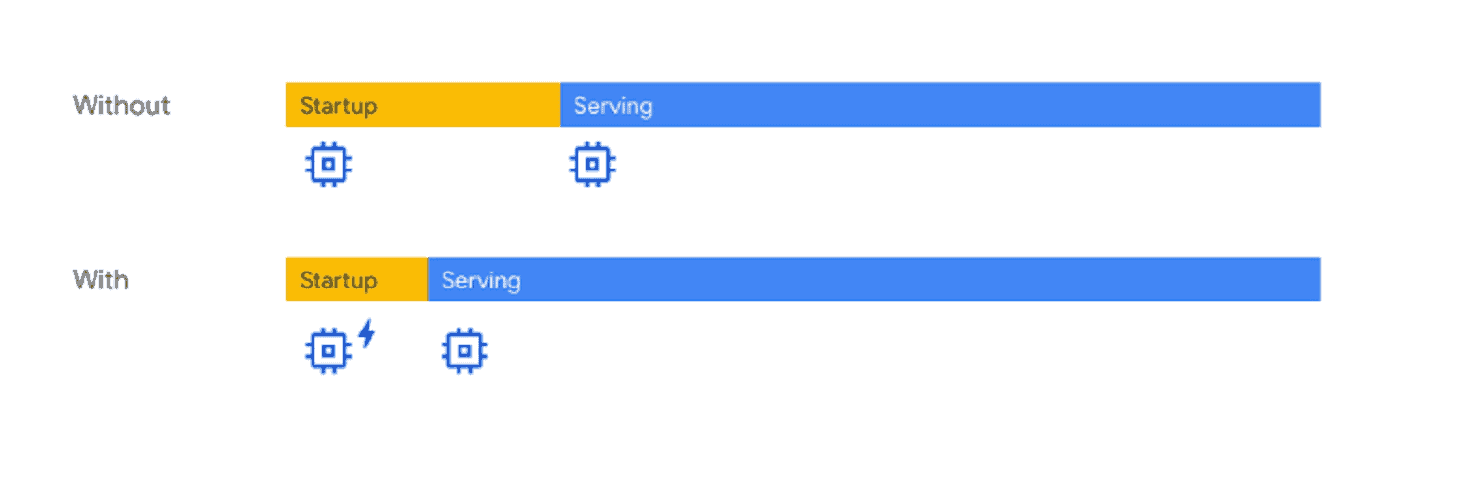Google Cloud launched ‘startup CPU boost’ to optimize application performance. Applications should run faster by improving startup times.
With the new functionality, the cloud giant performs computations with less latency. Applications speed up as a result. The functionality is part of the Google Cloud services Cloud Run and Cloud Functions.
The first service, Cloud Run, allows software container applications to run on cloud infrastructure. The service automates many maintenance tasks, allowing developers to focus on other tasks.
The second service, Cloud Functions, is a serverless computing technology that automates various software tasks running on Google Cloud infrastructure.
Startup time
Startup CPU boost reduces application startup times. This is achieved with a metric that affects the speed at which a program performs computational tasks.
Nearly all business applications consist of several separate software modules. Each module runs in a separate container. Applications are typically configured to only launch modules when needed. Modules that are no longer in use may be partly deleted. This should ensure optimal hardware usage.
However, launching a module takes time. Until the task is completed, requests to the application may be processed more slowly. As a result, users face more delays in application usage.
Startup CPU boost
The startup CPU boost service takes a different approach. The service helps reduce the time it takes to launch modules. The optional feature is now available in the Google Cloud management console.
When enabled, the feature detects when an application module is about to be activated and makes additional CPUs available for the cloud instance running the module. The extra processors allow the module to load faster, reducing delays for users.
The amount of additional CPUs allocated depends on the configuration of the customer cloud environment in question. The average number of additional CPUs allocated sits somewhere between two and eight, according to the cloud giant.

Speed depends on language
Google Cloud claims that the service reduces application startup times by half on average. However, the tech giant added that results differ depending on the application’s programming language. For example, applications based on Java tend to be slightly faster than those based on Node.js.
